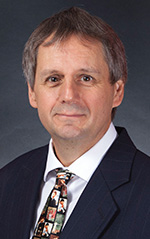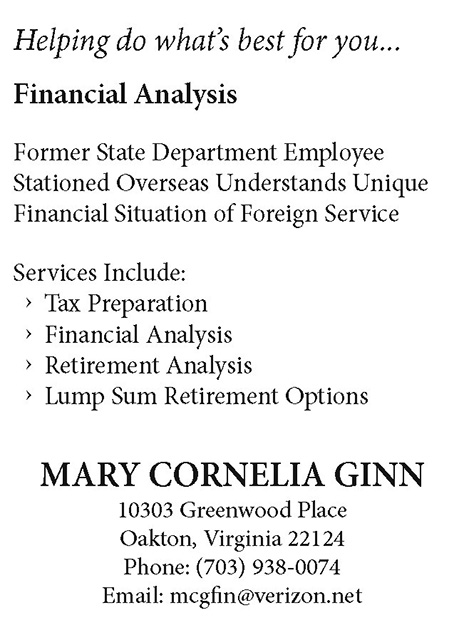State U—A Proposal for Professional Diplomatic Education and Outreach to America
This timely project proposal offers a single solution to achieving several top-priority goals.
BY JOEL EHRENDREICH
Three forces are creating a perfect storm right now, exposing the need for generational reform at the State Department.
First, the belief that the Foreign Service should pursue professional education for its officers during their careers is widespread, considered long overdue by many.
Second, the State Department has long endeavored to build its domestic constituency, reaching out to the American people to better explain why and how its work is relevant to them.
Third, subnational diplomacy (also known as city and state diplomacy) is playing an increasingly significant role in foreign policy. Subnational diplomacy can be a key contributor to the new administration’s vision, as articulated in the Interim National Security Strategy Guidance, for a “foreign policy for the middle class.”
We need to recognize what is at stake, and seize the moment to, as Secretary of State Antony Blinken said at his confirmation hearing, “modernize and rebuild, so our team around the world has the tools and the support they need to get the job done.” This proposal, “State U,” offers a single solution that would go a long way toward achieving those goals.
Specifically, during their midlevel years, Foreign Service officers should be required to complete one year of graduate or post-graduate education in the field of international affairs or a similarly relevant discipline. The immediate benefits are multifaceted. Such training provides a better educated workforce as the competition for influence around the world intensifies; strengthens the Secretary as the provider of the State Department’s combined wisdom to the president, Congress and foreign leaders; builds leadership; prepares officers for the next level of responsibilities; develops critical and strategic thinking; and enhances diplomatic skills.
Ideally, FSOs would spread out to universities around the country, benefiting from the perspectives they can gain from outside the Beltway. Geographic diversity would then provide the means to address the second and third issues: building State’s domestic constituency and engaging in subnational diplomacy. Officers assigned across the country would have the opportunity to conduct hometown diplomacy, interacting with state and local governments, schools, business groups, and think-tanks, serving as a point of contact for local communities.
We Need Professional Diplomatic Education
For the same reasons that the U.S. military emphasizes professional military education (PME) as an integral part of its officers’ career paths, the State Department should implement “professional diplomatic education” (PDE) for its officer cadre. Since the end of World War II, the military has used PME as an important part in the career development of its officers and, to a lesser extent, its enlisted personnel.
As military representatives explained at a U.S. House of Representatives hearing in July 2009, the goals of PME are “to contribute to the preparation of our military officers as they progress through their careers for leadership at the tactical, operational and strategic levels.” Senior military officers are expected to have spent more than three years enrolled in professional education over the course of their careers, and usually are given time away from the field to obtain at least one master’s-level degree. To give just one example, the Marine Corps—which numbers 186,000 in all—has approximately 16,500 officer and enlisted students involved in resident programs (515 of which are one-year programs) and 85,000 students involved in distance learning.
For the State Department to win in the years ahead, its leaders need to learn more than languages and writing skills; we need a culture of learning.
The State Department does an excellent job of providing entry-level orientation, language training, area studies and deputy chief of mission/ambassadorial training; but when it comes to broader development of foreign affairs knowledge, generally speaking, we’re left to pick it up while on the job. For the State Department to win in the years ahead, its leaders need to learn more than languages and writing skills; we need a culture of learning.
According to the 2017 study, “Developing Diplomats: Comparing Form and Culture Across Diplomatic Services,” Chinese diplomats are only eligible for promotion after earning credits from short-term and long-term training courses; it is a system that encourages a culture of continuous improvement within the diplomatic service. A unique feature of their professional development is that approximately 140 officers are sent to major national and international universities annually to complete a full year of graduate-level academic study. Chinese Ambassador to Washington Cui Tiankai received a postgraduate degree from Johns Hopkins University’s School of Advanced International Studies.
Indian and Brazilian diplomats, in addition to rigorous in-career training, spend time in their countries’ various states to experience the diversity of their own country and share their experiences with constituents, the same study found. While we certainly don’t need to mimic the practices of any other country, it is apparent that our competition is pulling ahead of us in terms of formal professional development of their diplomats.
Outreach to the American Public
At the same time, the lack of a recognizable domestic constituency harms the Department of State, both in building support for policies and in the battle for resources from Congress. When Americans don’t understand what we’re doing—or how it affects them—they are less likely to support our policies and budget requests for their taxpayer dollars. Stereotypes of diplomats as elitists spending taxpayer dollars overseas while problems at home remain unresolved go unchallenged.
State does have a few programs in place to address the domestic constituency deficit. The Diplomats in Residence program sends some 20 senior officers to faculties at American universities. Our Hometown Diplomats program tasks a small number of officers each year to make limited outreach in their local communities.
What we need, however, is a calculated, strategic approach at a scale that is large enough to have a lasting impact. This proposal envisions posting hundreds of FSOs around the country for professional education every year. Building off the Diplomats in Residence and Hometown Diplomats programs, we should require our State U students to not only speak to faculties and other interested classes at the universities they’re attending, but also reach out to other universities in the area, or high schools, governors and mayors, businesses and business clubs, think-tanks, the media and other interested groups.
Repeated annually, across the country, we will exponentially increase our domestic outreach, making contact with sections of the public we’ve never reached before. The State Department would no longer be a stranger to those on Main Street. The converse is also true: Main Street would become a greater part of who we are. We will gain a greater understanding of what our foreign policy means to Americans outside Washington circles, and what Americans want their diplomats to be doing for them.
The Need for Subnational Diplomacy
American cities and states are becoming increasingly active participants in global diplomacy. From transnational issues such as global warming and pandemic response to terrorism (both international and domestic) and economic development, local institutions are seeking to engage more than ever before with the State Department and international partners. Although foreign policy is the domain of the federal government, the active and growing involvement of American cities and states should be welcomed and encouraged. The logic is circular, but in a good way: The department must enlist cities and states to better advance American interests overseas and, in turn, achieve a foreign policy that benefits the middle class back home.
Currently, however, we do not have a mechanism for this. To be sure, State runs numerous subnational programs—from law enforcement exchanges and training for foreign police to immigrant immersion programs and local consultations over water rights issues along our borders. But overall, our subnational engagement is ad hoc and rarely coordinated in any way with our strategic foreign policy goals.
It is apparent that our competition is pulling ahead of us in terms of formal professional development of their diplomats.
In fact, this discrepancy between our cities and states desiring more inclusion in foreign policy and the lack of a mechanism to do so has already caught the attention of Congress. At the time of this writing, Senator Chris Murphy (D-Conn.) and others were preparing to reintroduce a bill that would require State to create an Office of Subnational Diplomacy. The bill states: “It is the sense of Congress that it is in the interest of the United States to promote subnational engagements, align such engagements with national foreign policy objectives, and leverage federal resources to enhance the impact of such engagements.”
Led by an ambassador-at-large, this office would, among other things, advise the Secretary on subnational issues, help mayors and governors engage with their foreign counterparts, coordinate with the interagency and promote U.S. foreign policy goals through support for subnational engagements. The bill has received widespread support, including from the Council on Foreign Relations, the Truman Center, the German Marshall Fund, the American Academy of Diplomacy and the U.S. Conference of Mayors.
How the Program Could Work
The program could be implemented as follows, perhaps starting with a pilot program of smaller scale. Establish a procedure to send up to X percent (the exact number would be determined by human resources needs) of midlevel Foreign Service officers annually to master’s, Ph.D. or faculty programs. Participants with a bachelor’s degree, or a master’s degree in a program not related to international affairs, would attend one-year master’s degree programs in international affairs or a related field.
Participants with master’s degrees in international affairs or a related field could pursue further master’s credits in another related field (such as management or public administration), begin a doctoral program (if State regulations allow) or serve on the faculty of a university international affairs or related program (similar to or as part of the Diplomats in Residence program). Participants with a Ph.D. could pursue further doctoral credits or serve on the faculty of a university international affairs or related program. Waivers could be given to those officers for whom further professional education is deemed of little benefit.
Participants could attend one of the universities State is already associated with (through the Diplomats in Residence program), one of the existing security studies programs at a Defense Department facility, or write a justification to attend any accredited program in the United States. In fact, State should encourage participants to spread out across the country. Participants would be expected to perform public outreach and subnational diplomacy functions, in addition to successfully completing coursework.
Participation in the program would be done through the normal competitive bidding process. As successful completion of State U would be a requirement for entry into the Senior Foreign Service, the department would choose bidders who demonstrate the potential to serve in the senior ranks; low-ranking officers would likely not get their bids for these assignments.
Costs and Other Considerations
The cost of implementing such a program would essentially entail tuition/books, domestic travel and personnel hiring to create a “training float.” As all officers would be assigned domestically, there would be no requirement for per diem or housing.
Because funds would have to be appropriated by Congress, it might seem easy to dismiss the concept as impossible given financial constraints. However, with a new administration able to set new priorities, such a program might not be as unattainable as one would imagine. Recently, members of Congress have expressed interest in providing State with the budget it needs to stay ahead of today’s competition. In mid-March, a group of progressive House and Senate Democrats announced a proposal that called for nearly $13 billion in new money in the coming foreign affairs budget cycle. This included money to boost the diplomatic corps, and explicitly noted that members “are calling for the hiring of 1,200 more diplomats for the State Department in fiscal 2022 at a cost of $480 million.”
At the same time, the lack of a recognizable domestic constituency harms the Department of State, both in building support for policies and in the battle for resources from Congress.
Further, the Murphy subnational bill cited above includes specific language that would authorize “no fewer than 30 total Foreign Service officers and members of the Civil Service each year to [be assigned to] state, county and municipal governments”—a signal that congressional support for dispatching State officials domestically may be ripe.
In addition to cost, one important issue to address would be how to adapt the department’s promotion practices to affirm the value of professional diplomatic education. The employee evaluation report (EER) should be amended to account for the different nature of such an assignment and include ways to assess performance during the year of State U. Those who excel at their coursework, or perform exceptional outreach during the year, should be recognized by promotion panels in the same way any officer would be for exceptional work. If, like the Department of Defense, selection for this academic training is a strong indicator for future promotion to leadership ranks, and the State Department demonstrates it values the program year as much as other assignments, buy-in should be wide and quick.
State does not have to reinvent the wheel to establish such a program. State could consult with DOD, where, as mentioned, there is a long tradition of professional education and well-established management practices. There shouldn’t be any unforeseeable devil in the details.
Modernize and Rebuild
So, what’s the goal? To build a workforce that—on both the individual and institutional levels—is able to think strategically about America’s foreign policy, in touch with the American public, for the purpose of optimizing America’s diplomacy.
How will it be measured? Within 10 years, 100 percent of career Senior FSOs have graduate level degrees in foreign affairs or a related field. Contact between Foreign Services officers and the American public is 300 times greater than current baselines. And outreach to American companies domestically increases by 500 percent compared to current baselines.
The bottom line is that professional education is just one part, albeit a critical part, of greater reforms the State Department needs to make. This project could be the most visible example from the incoming administration of its investment in its people, an enduring legacy that transforms our diplomacy.
Read More...
- “Revitalizing State—Closing the Education Gap,” by David C. Miller Jr., Thomas R. Pickering and Rand Beers, The Foreign Service Journal, May 2021
- FSJ Special Collection on Diplomatic Tradecraft
- “It’s Practical: Training the Next Generation of Diplomats,” by Edward “Skip” Gnehm, The Foreign Service Journal, September 2017




